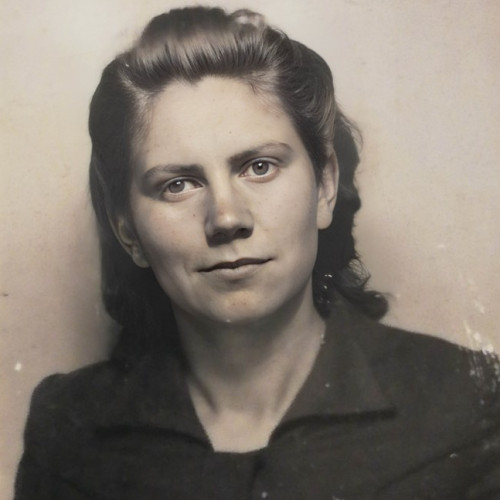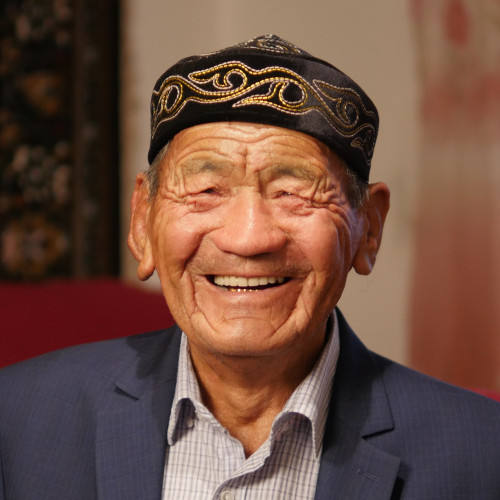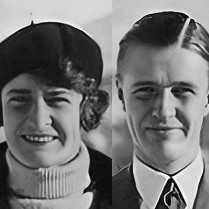Hélène Pionstka z d. Waldmann - Instytut Pileckiego
Hélène Pionstka z d. Waldmann (1921–2009)
Awarded in 2022.

In 1941, the Germans established a POW camp for Polish soldiers close to the farm of Émile and Alice Waldmann in Ursprung, Alsace.
The Poles were allowed to leave the camp to help local farmers in their work. The prisoners came among others to the Waldmann family. Their daughter, then 20-year-old Hélène, became engaged in helping Polish POWs and established closer relations with one of them, Jan Piąstka.
After the Poles escaped from the camp on the night of 26 August 1944, Hélène went to see Jan in his hideout at the Gorius place. Her frequent visits posed the risk that the Germans might discover the fugitives. Hélène organized a new shelter for Jan at the house of her relatives, where she took care of him and brought him food.
Jan Piąstka lived to see Fréland liberated by the Americans at the beginning of December 1944. He served a few more years in the Polish Army. In the meantime, on 27 June 1945, Hélène and Jan got married. After Piąstka was released from the army in 1947, the spouses remained in Alsace and had two daughters. The family took residence in Ribeauvillé, where Jan tended to the monastery vineyard.
Three or four days later my father woke me up and said that someone was knocking on the window. I went to see and found out that it was one of the Polish prisoners (my future husband). The other prisoners resented him for it, as they feared I might tell someone. My mother did not want him to stay, so he went to hide at my cousin’s place whose father was the guard’s helper. I carried food for him every day; he spent the days in a room downstairs and at night he slept in the hay. No one but us knew about it and so the time passed by.
See also
- Tassybaj Abdikarimow

awarded
Tassybaj Abdikarimow
(1938–2020)The Jabłoński family were in an difficult situation — terrible sanitary conditions, shortage of food, and hard labor in the sun caused a very high mortality rate among he inhabitants. During this difficult time, help came from a 16-year-old Kazakh.
- Herasym Łukiańczuk

awarded
Herasym Łukiańczuk
(1890–1953)“He walked slowly and told me discreetly: ‘Don’t go anywhere, maybe they won’t see you. I will come and get you in the evening. Your brother is already at my place,’” recalled Leokadia Skowrońska, who was saved by Herasym Lukianchuk.
- Erzsébet Szápáry (1902-1980) Antal Szápáry (1905-1972)

awarded
Erzsébet Szápáry (1902-1980) Antal Szápáry (1905-1972)
Erzsébet and Antal Szápáry came from a famous family of Hungarian aristocrats. Their mother, Maria Przeździecka, was a Pole, and this fact had a bearing on their involvement in relief activities for Polish refugees after 1939.


